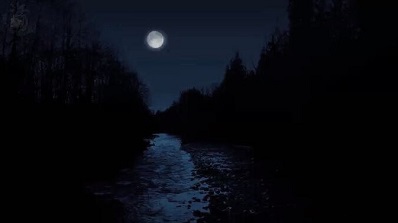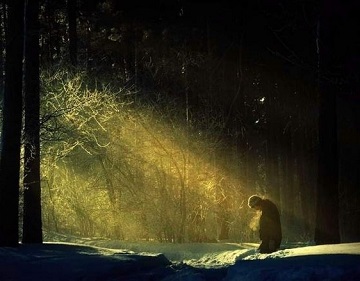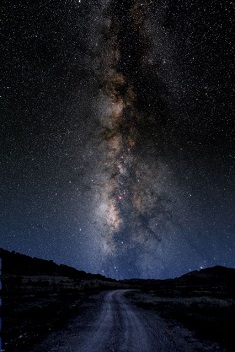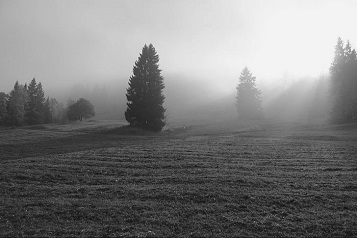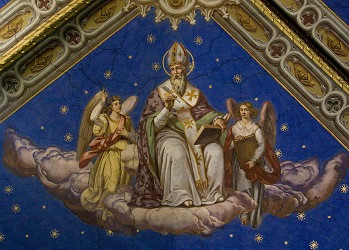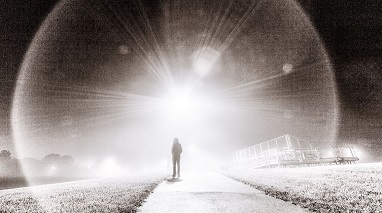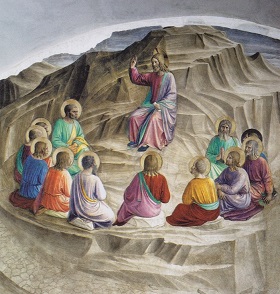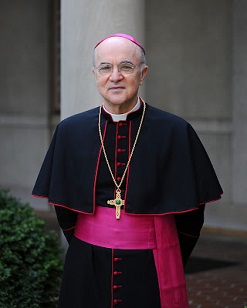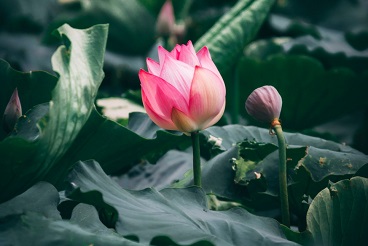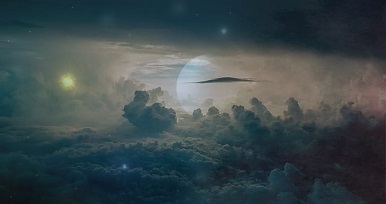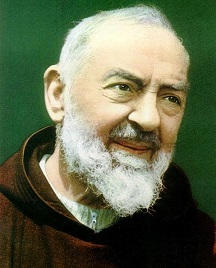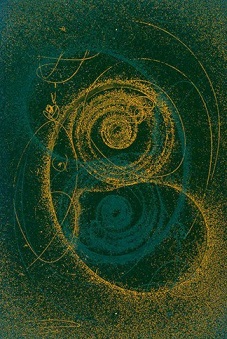Trusting In Mind
Third Patriarch of Zen, Seng T'san
A New Translation of the Hsin-hsin Ming,
by Zen Master Hae Kwang (Stan Lombardo)
Seng T'san was the third Chinese patriarch of Zen, having received transmission from Bodhidharma's successor, Hui-k'ê. The poem attributed to him, the "Hsin-hsin Ming" (lit. "Trust Mind Inscription"), is one of the earliest and most influential Zen writings, blending together Buddhist and Taoist teachings.
Seng-ts'an succeeded Hui-k'ê as the third patriarch. The interview between master and disciple took place in this manner: A layman of forty troubled with fêng-yang 1 according to the Records 3, came to Hui-k'ê and asked:
– 'I am suffering from fêng-yang; pray cleanse me of my sins.'
– 'Bring your sins here,' said Hui-k'ê, 'and I will cleanse you of them.'
The lay-disciple was silent for a while but finally said,
– 'As I seek my sins, I find them unattainable.'
– 'I have then finished cleansing you altogether. You should thenceforth take refuge in the Buddha, Dharma, and Samgha (Brotherhood), and abide therein.'
– 'As I stand before you, O master,' asked Sêng-ts'an, 'I know that you belong to the Brotherhood, but pray tell me what are the Buddha and the Dharma?'
Replied the master:
– 'Mind is the Buddha, Mind is the Dharma; and the Buddha and the Dharma are not two. The same is to be said of the Brotherhood (samgha).'
This satisfied the disciple, who now said, 'Today for the first time I realize that sins are neither within nor without nor in the middle; just as Mind is, so is the Buddha, so is the Dharma; they are not two.' 2
The Zen Teaching of Huang Po: On the Transmission of Mind
As recorded by the scholar P'ei Hsiu of the T'ang Dynasty. Rendered into English by John Blofeld (Chu Ch'an) [Excerpts. Complete text (.pdf) HERE]
P'ei Hsiu's Preface – The great Zen Master Hsi Yun lived below the Vulture Peak on Mount Huang Po, [From which he takes his posthumous name] in the district of Kao An which forms part of the prefecture of Hung Chou [In the modern province of Kiangsi]. He was third in the direct line of descent from Hui Neng,[Wei Lang] the Sixth Patriarch, and the pupil of a fellow-disciple of Hui Hai. Holding in esteem only the intuitive method of the Highest Vehicle, which cannot be communicated in words, he taught nothing but the doctrine of the One Mind; holding that there is nothing else to teach, in that both mind and substance are void and that the chain of causation is motionless. Mind is like the sun journeying through the sky and emitting glorious light uncontaminated by the finest particle of dust. To those who have realized the nature of Reality, there is nothing old or new, and conceptions of shallowness and depth are meaningless. Those who speak of it do not attempt to explain it, establish no sects and open no doors or windows. That which is before you is it. Begin to reason about it and you will at once fall into error. Only when you have understood this will you perceive your oneness with the original Buddha-nature. Therefore his words were simple, his reasoning direct, his way of life exalted and his habits unlike the habits of other men.
Disciples hastened to him from all quarters, looking up to him as to a lofty mountain, and through their contact with him awoke to Reality. Of the crowds which flocked to see him, there were always more than a thousand with him at a time. In the second year of Hui Ch'ang (A.D. 843), when I was in charge of the district of Chung Lin, I welcomed him on his coming to that city from the mountain where he resided. We stayed together in the Lung Hsing Monastery where, day and night, I questioned him about the Way. Moreover, in the second year of T'ai Chung (A.D. 849), while governing the district of Wan Ling, I again had occasion to welcome him ceremoniously to the place where I was stationed. This time we stayed quietly at the K'ai Yuan Monastery, where also I studied under him day and night. After leaving him, I recorded what I had learnt and, though able to set down only about a fifth of it, I esteem it as a direct transmission of the Doctrine. At first I was diffident about publishing what I had written; but now, fearing that these vital and penetrating teachings will be lost to future generations, I have done so. Moreover, I gave the manuscript to the monks T'ai Chou and Fa Chien, requesting them to return to the Kuang T'ang Monastery on the old mountain land to ask the elder monks there how far it agrees with what they themselves used frequently to hear in the past.
Abp. Viganò: In this time of crisis we must use Advent to prepare for the trials that lie ahead
Carlo Maria Viganò, Archbishop
“"Seek," he says, "Thy servant, because I have not forgotten Thy commandments [Ps 118:176]. Come therefore, Lord Jesus, seek Thy servant, seek Thy weary sheep; come, Shepherd, seek, as Joseph sought the sheep [Gen 37:14]. Thy sheep hast wandered while Thou didst tarry, while Thou hast been about in the mountains. Leave behind Thy ninety-nine sheep, and come seek the one which hath wandered [Mt 18:12 ff; Lk 15:4]. Come without dogs, come without evil doers, come without the hireling, who does not know how to pass through the door [Jn 10:1-7]. Come without a helper, without a messenger. I have been waiting for Thy coming for a long time. For I know that Thou wilt come, for I have not forgotten Thy commandments [Ps 118:176]. Come not with a rod, but with charity and in the spirit of meekness [1 Cor 4:21].” — Saint Ambrose, Expositio Psalmi CXVIII, 22, 28.[1]
The sacred time of Advent is of ancient institution and we find mention of it from around the fifth century, as a moment of the Liturgical Year destined for the preparation of the Nativity of Our Lord Jesus Christ secundum carnem. Indeed, Advent marks the beginning of the Liturgical Year, allowing us to seize this opportunity to follow, with holy resolutions, the voice of the Church.
The Book of Divine Consolation
Eckhart von Hochheim
Benedictus Deus et Pater Domini nostri Jesu Christi, [Pater misericordiarum, et Deus totius consolationis]. [Blessed be the God and Father of our Lord Jesus Christ, the Father of mercies, and the God of all comfort.] (2 Cor. 1:3f.)
The noble apostle Paul says this: ‘Blessed be God and the Father of our Lord Jesus Christ, the Father of mercies and God of all consolation, who comforts us in our tribulation.’ There are three kinds of tribulation which affect and oppress us in this place of exile. The first comes from damage to our worldly goods, the second from the harm which befalls our relatives and friends and the third comes from the injury we suffer when we become the object of others’ disdain, when we experience hardship, physical pain and emotional distress.
Therefore it is my intention in this book to record certain precepts with which men and women can find consolation in all their distress, grief and suffering. And this book has three parts. In the first there are a number of truths from which it can be deduced what can and will give us appropriate and complete consolation in all our suffering. Following this, there are some thirty extracts and maxims in every one of which we can find complete consolation. Finally, the third part of this book contains examples of words and deeds which wise people have spoken and done in the face of suffering.
The Fifth Great Awakening
Andrew Torba
Everyday I see Christians from across the faith, be it Catholics, Protestants, or Orthodox believers, sharing their testimonies, discussing God’s Word, buying things from one another, supporting one another, praying for one another, and leading people to Christ. I see the early foundation and fruits of a parallel Christian economy.
I have a testimony to share with you. – Typically Christians don’t share testimonies like this because they are “afraid of what people will think.” I posit that Christians should instead start caring about what God thinks. We should also never be afraid to discuss the many ways that God works in our lives or makes His presence known to us.
So I’m going to share this testimony and I’d love to hear from you if you have ever experienced anything similar. I’d also encourage you to openly share your testimonies on social media, at work, or with a friend in the hope and prayer of lifting up our Brothers and Sisters and bringing someone new to the Lord.
This past week I have felt the presence of the Holy Spirit overwhelm me to the point of tears, fear, and trembling. It was absolutely surreal and incredible. I can’t even find the words to describe it.
I instantly became distinctly aware of God’s presence, love, grace, and glory. More importantly I became aware of how utterly unworthy I am of it. I remember praying “Lord have mercy on me a sinner” over and over again. This was followed by a flood of peace and joy.
The interesting thing is that this has been happening all week shortly after I spend time in the presence of other Christians. For example on Sunday night after church or after grabbing dinner with Christian friends, etc.
"Our Father, who art in heaven, hallowed be Thy Name, thy kingdom come..."
Carlo Maria Viganò, Archbishop
Archbishop Viganò: 'What we see happening corresponds to an inhuman project by forces who hate not only the health of the body, but also and above all the salvation of the soul.'
TURIN, Italy, (LifeSiteNews) — Archbishop Carlo Maria Viganò addressed anti-vaccine passport protesters gathered on a square in Turin on Sunday in a prerecorded video message in which he denounced the use of the pandemic by higher powers to bring about the “Great Reset.”
Archbishop Viganò’s 10-minute video message was transmitted on a giant screen on Piazza Castello in Turin, where anti-vaccine pass protesters were gathered for a “No Paura day” (“No fear day”) on Sunday. The former Apostolic Nuncio to the United States established a connection between the imposition of the “green pass” in Italy and the establishment of the Great Reset he has warned about on many occasions.
Viganò began by expressing his support for the people gathered on Castello square as well as many other squares in Italy and congratulated them for their determination in resisting “the narrative of lies” from the mainstream media.
He then denounced the establishment of a health dictatorship in which both lay people and clerics have taken part:
Listening to the Thin Voice of Silence
Hans Ucko
Deep listening to the other doesn’t just provide space for the other to be who he or she really is. Listening to the other also provides space for the listener’s own religious wanderings and pilgrimage.
The duo Simon and Garfunkel is famous for many songs. One of them is entitled “The Sound of Silence:"
"And in the naked light I saw
Ten thousand people, maybe more.
People talking without speaking,
People hearing without listening."
Most of us have noted the same. People talk but don’t communicate. People hear but are not listening. It’s not unusual, and we come across it, even in that which we refer to as dialogue. The realm of dialogue, where two or more people exchange ideas or opinions on a particular issue, is not always true to the inner meaning of the word. The word dialogue [διάλογος] itself is maybe to blame. The word is derived from the Greek words διά (diá), meaning “through,” and λόγος (logos), meaning “speech” or “discourse.” Dialogue thus means “through speech.” The word dialogue itself, from which of course the very concept of dialogue arises, may actually make us believe that listening is somehow subordinated to talking. It does not seem to offer space for listening, as if through speech alone we could dialogue.
As If In A Daze
Consider for a moment the world to be like an infinite cloud, one in which you’ve been living your entire life, one in which there were no limits, and where the cloud never stopped being a cloud. You have had it wrapped around you since the beginning of time. In this cloud people and things have been appearing to you out of nowhere. It was always like that; there never was anything else than this, never anything else but your world.
Over the years you’ve become better at managing your fears, better than you used to, and have come to feel more secure, even though things are not quite as you would have preferred them to be. But anyway, it’s your world, the normal one, the one you’ve grown used to. You’ve made some choices and have created this world in some sense, according to what you needed and to what you thought was right. The things you didn't like appear to be «gone» now. Maybe there were people you didn’t like; they appear to be «gone» now. You would like to keep it this way.
Padre Pio of Pietrelcina. Healer for a Broken Time
Padre Pio of Pietrelcina, the Capuchin priest who carried the wounds of the crucified Christ, embodied truths that have been stridently denied by many who would tell us how we are to think and what we are to disbelieve during these times of overwhelming power and overwhelming impotence. This remarkable man bore witness to the essential truth carried in the Christian understanding of the Incarnation, of the human embodiment of the living Christ. As one who bore the stigmata, the five wounds of the crucified Christ, Padre Pio projected historical truth.
He shares this witness with such others as Saint Francis of Assisi and Therese Neumann, both of whose lives shatter the certainty of what has been considered the limits of the possible.
We pride ourselves on the cogency of the scientific knowledge and understanding that have enabled us to crack apart atoms and atolls, leave flags and footprints on the moon, and map the structure of cellular DNA. This same pride has decreed that only through such methods as those sanctioned by science can we arrive at Truth. But despite our proofs and our powers, many aspects of the phenomenal world continue to defy scientific interpretation.
Sixty years ago, historian of science Thomas Kuhn described how our ways of thinking can become so fixed that we refuse to accept any evidence that cannot be explained or accommodated by our view of the world or the paradigm through which we interpret reality. Kuhn went on to describe the progressive accumulation of "anomalous" evidence that does not fit in to our way of thinking. This can often force a complete reassessment of the paradigm or model through which such evidence is interpreted. This process underlies the periodic revolutions that occur in scientific understanding.
There is no shortage of "anomalous" manifestation in the world. And there is much that occurs in the experiences of many that simply cannot be accommodated by an exclusively materialistic and rationalistic view of reality.
Meditation Handbook
Christopher Calder
Meditation is inner astronomy. You discover the stars, the moon, and the sun are all inside you.
What is Meditation?
Most dictionaries define the Western (Jewish, Christian, Islamic) meaning of the word "meditation," but usually do not describe the Eastern (Hindu, Buddhist, Taoist) concept of meditation. The most appropriate dictionary definition I could find reads as follows: "If you meditate, you give your attention to one thing, and do not think about anything else, usually as a religious activity or as way of calming or relaxing your mind." This definition very subtly implies that meditation means thinking about something, be it religious or mystical in nature, and that a constant thought process goes on while one meditates. The purest Eastern definition of the word 'meditation' means not thinking at all, but rather focusing the consciousness on the cosmic whole, "the all and the everything" as George Gurdjieff called it, without thought, judgment, or distraction.
We define the word 'meditation' here as the art of consciousness becoming aware of itself on the grand and cosmic scale. Meditation cannot honestly be called a science because any real science requires objective testing, which is not currently possible for the practice of meditation. The real art of meditation is beyond thought, beyond society, and beyond time.

